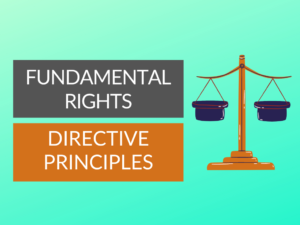Difference between Advance Directive and Living Will
What is an Advance Directive?
An advance directive is a legal document that allows individuals to make decisions about their medical care in case they become unable to communicate their wishes. It provides instructions regarding the medical treatments or interventions an individual wants or does not want under specific circumstances.
Examples of Advance Directives:
- Durable Power of Attorney for Health Care
- Medical Power of Attorney
- Living Will
- Do Not Resuscitate Order (DNR)
Uses of Advance Directive:
Advance directives ensure that individuals receive appropriate medical treatment according to their personal preferences and values. They empower individuals to have a say in their healthcare decisions even when they are unable to communicate their wishes.
What is a Living Will?
A living will is a specific type of advance directive that focuses on end-of-life decisions. It outlines an individual’s preferences for medical treatments or interventions if they are in a terminal condition or permanent vegetative state and cannot express their wishes.
Examples of Living Wills:
- Withholding or withdrawing life-sustaining treatment
- Administration of pain relief
- Organ donation
Uses of Living Will:
A living will ensures that individuals receive the desired end-of-life care and prevents unwanted medical interventions when they are unable to communicate their wishes. It provides guidance to healthcare professionals and alleviates the burden of decision-making from family members.
Differences between Advance Directive and Living Will:
| Difference Area | Advance Directive | Living Will |
|---|---|---|
| Focus | Broader range of healthcare decisions | Specifically focuses on end-of-life decisions |
| Scope | Can cover a variety of medical treatments and interventions | Primarily covers withholding or withdrawing life-sustaining treatment |
| Legal Requirements | May require specific legal formalities depending on the jurisdiction | May require specific legal formalities depending on the jurisdiction |
| Activation | Can be activated when an individual becomes incapacitated or unable to communicate | Activated when an individual is in a terminal condition or permanent vegetative state |
| Decision-Maker | Can designate a healthcare proxy or agent to make decisions on their behalf | Mainly focuses on the individual’s own preferences and choices |
| Specificity | Provides comprehensive instructions for a range of medical scenarios | Specifically outlines end-of-life treatment preferences |
| Usefulness | Applicable in various situations, not limited to end-of-life decisions | Primarily applicable in end-of-life situations |
| Flexibility | Allows for changes and updates as per individual’s evolving preferences | May require amendments if the individual’s preferences change |
| Availability | Can be used by individuals of all ages and health conditions | Primarily utilized by individuals with terminal conditions or those at risk of permanent vegetative state |
| Regulations | Subject to state-specific laws and regulations | Subject to state-specific laws and regulations |
Conclusion:
In conclusion, while both advance directives and living wills empower individuals to express their healthcare preferences, they differ in focus, scope, activation conditions, and decision-making aspects. Advance directives cover a broader range of healthcare decisions, whereas living wills specifically address end-of-life choices.
People Also Ask:
- What is the difference between an advance directive and a living will?
An advance directive is a legal document that includes various healthcare decisions, while a living will is a specific type of advance directive focusing on end-of-life decisions. - Are advance directives and living wills the same thing?
No, they are not the same. A living will is a type of advance directive. - Can I have both an advance directive and a living will?
Yes, you can have both. An advance directive can encompass a living will. - Do advance directives and living wills have legal requirements?
Yes, depending on the jurisdiction, specific legal formalities may be required for both advance directives and living wills. - Who can activate an advance directive or a living will?
Advance directives can be activated when an individual becomes incapacitated, while living wills are activated when an individual is in a terminal condition or permanent vegetative state.


